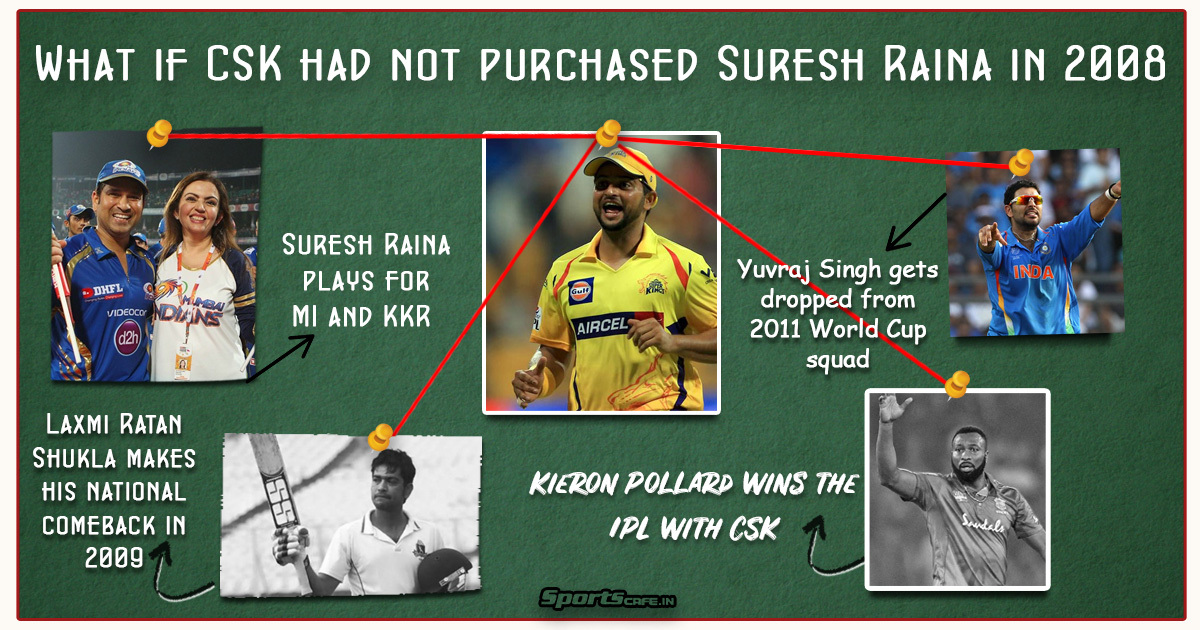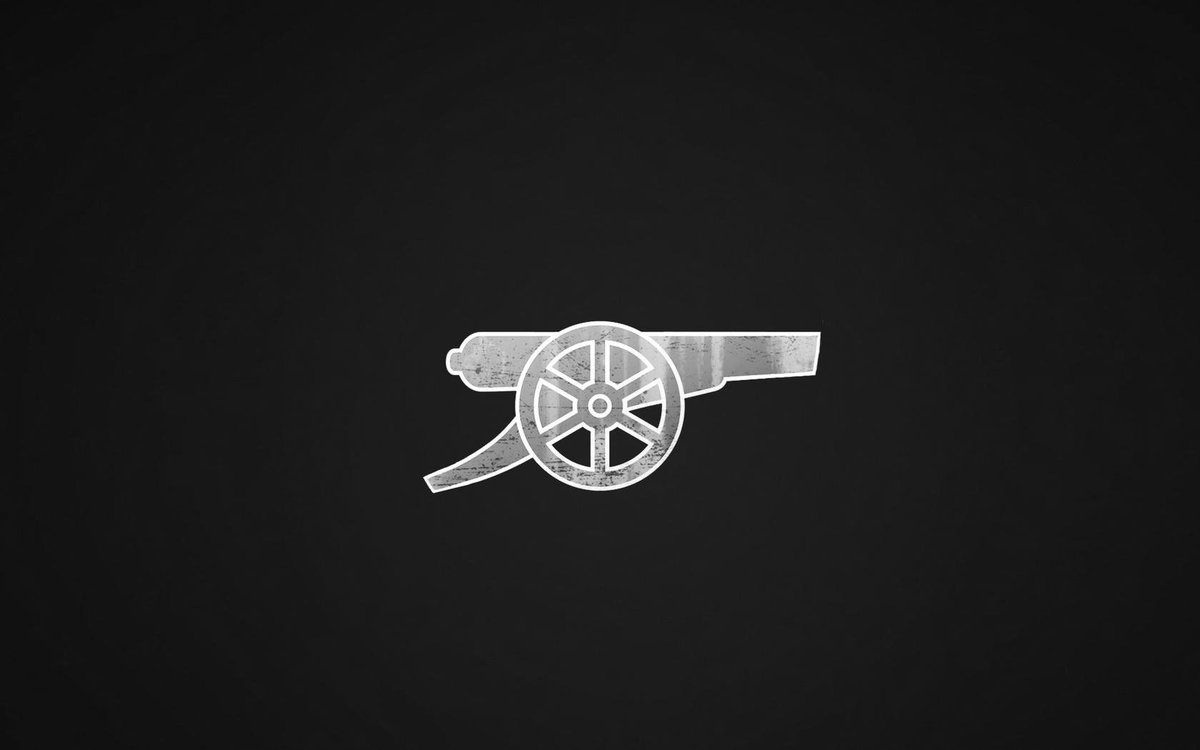What if Wednesday | What if CSK had not purchased Suresh Raina in 2008

On February 20, 2008, in the first ever auction in Indian Premier League (IPL) history, Chennai Super Kings made arguably the most significant purchase in the competition’s history, by scooping Suresh Raina for $650,000. But what if the franchise had decided to overlook the flamboyant southpaw?
We know Chennai Super Kings (CSK) purchased Suresh Raina for 5.2 times his base price ($125,000) and we know it turned out to be a telling move not just for the franchise, but for Indian cricket, as a whole. Raina’s ludicrous consistency saw him earn the “Don Bradman of IPL” tag from fans and, for several years, his otherworldly form for the Chennai-based franchise also translated into runs for the Indian national team. But what if Raina’s love story with CSK never happened in the first place? What if the franchise had decided to overlook the southpaw?
The date is February 20, 2008 and after having already landed MS Dhoni, Matthew Hayden, Michael Hussey and Stephen Fleming, Chennai lay motionless as auctioneer Richard Madley calls out the name of 21-year-old Suresh Raina. Instead, in pursuit of the youngster are Mumbai Indians (MI) and Kolkata Knight Riders (KKR), who indulge in a rampant bidding war for the prodigal batsman from Uttar Pradesh. KKR are desperate and determined to land the 21-year-old, but having already blown out cash on the likes of Ricky Ponting and Brendon McCullum, SRK & Co. concede the batsman to Mumbai, who purchase Raina for $750,000.
Purchased as a middle-order batsman, an untimely injury to opener and club captain Sachin Tendulkar forces the MI management to instead promote Raina to the opening slot and the youngster is informed of the decision just minutes before the side’s first match of IPL versus RCB thanks to stand-in skipper Shaun Pollock who, until the toss, was pondering over opening with Kiwi Luke Ronchi. The management and the skipper do not have high hopes on Raina the opener, but the youngster springs a surprise by forming impeccable chemistry with partner Sanath Jayasuriya. Together, in the first half of the season, the duo stitch five fifty-run partnerships in seven games and while it’s the Sri Lankan who hogs all the limelight, Raina, nevertheless, carves a niche for himself by averaging 32.50 in the first seven games.
However, despite scoring consistently, Raina’s failure to convert starts sees him get pushed to the middle-order by the management, who have no second thoughts in opening with icons Tendulkar and Jayasuriya post the Little Master’s comeback from injury. The move pays dividends for Mumbai, who win each of their next three matches, but serves detrimental to Raina, who ends up posting a string of single-digit scores - 3, 0 and 1. A fourth failure in a row, a three ball duck versus KXIP, sees MI drop Raina to accommodate 19-year-old Manish Pandey at #4 against Delhi in Match 50 of IPL 2008, and the youngster sends shockwaves through the entire tournament in his first ever match, scoring an astounding 114 to become the first and the youngest Indian to score a ton in the competition.
Manish Pandey’s outrageous knock sees Raina warm the bench for the rest of the season and so, knowing his opportunities will be limited, MI graciously trade the 22-year-old to KKR, the club that desperately wanted him in the auction, ahead of IPL 2009. Raina sees the KKR move as a potential door for salvation, but a combination of a packed top-order and Ganguly’s reluctance to drop himself from the side means that the youngster just gets 5 games all season, in which he manages a total of just 85 runs.
Ignoring Raina’s form and lack of gametime, the Indian selectors pick the southpaw for the 2009 World T20 in England on pure potential but dumbfoundingly, much to his own horror, 10, 5, 2 and 3 is all the 22-year-old manages to score in his four outings in the tournament. The management then hand Raina one last lifeline in the tri-series against Sri Lanka and New Zealand in Colombo, but failure to keep his boat afloat sees the selectors inevitably omit him from the squad for the 2009 Champions Trophy.
Come the Champions Trophy, India are in trouble in their first group game against Pakistan, reeling at 133/4 chasing 303, but are rescued by an unlikely hero in the form of Laxmi Ratan Shukla. But where did he come from? While Raina went to KKR, Shukla went the other way around to Mumbai and his very good Vijay Hazare 2008 season - average of 40.00 with the bat and 8 wickets with the ball - coupled with his extraordinary IPL season - 374 runs and 15 wickets - saw the all-rounder make a comeback to the national side after 10 long years.
However, Shukla wasn’t the only hero on the night as it was, in fact, a quickfire 42* from 23-year-old Manoj Tiwary that helped India initially blunt the threat of Umar Gul, Mohammad Amir and Rana Naved. Tiwary was also someone who Mumbai imported - they traded him for Abhishek Nayar with Delhi - and together with Shukla, the youngster had propelled MI to the IPL 2009 final. It was Tiwary’s 487-run season in IPL 2009, coupled with his 373-run season in the 2008 Vijay Hazare Trophy season, that enabled the selectors to fasttrack the 23-year-old.
A washout against Australia sees India progress to the semi-final of the Champions Trophy but they find themselves in a much, much tighter affair in the semis against the Kiwis at the Wanderers. Chasing 234, the Kiwis are in firm control of the encounter with the score 166/4, but the game turns on its head - in favour of India - thanks to a direct-hit from substitute Manish Pandey, which sends danger-man Grant Elliot back to the pavilion. Pandey had, incidentally, snuck himself into the squad by winning the Emerging Player award in IPL 2009. A spirited Indian side overcome the Kiwi threat, but are blown away in the final by a Shane Watson century.
Back to the IPL, CSK, ahead of the 2010 auction, finally let go of Robin Uthappa, who they’d splashed the cash on in the very first edition of the tournament, and instead set their sights on the big-hitting Kieron Pollard. Eventually, they manage to secure the services of the Trinidadian, who Mumbai did not pursue due to them already having a packed middle-order. Pollard struggles in the minefields of Chepauk, and hence to combat the same, skipper MSD deploys the big man as an ‘away specialist’. The ploy is hit and miss throughout the group stages, but CSK bear fruit of the tactical masterclass in the knockouts as Pollard, in the flat Mumbai wicket, strikes 84* (29) and 55* (18) to deliver CSK their maiden IPL title - with a victory over MI in the final.
A disappointing showing in the subsequent World T20 - particularly from seniors - agitates Dhoni, who, months prior to the 2011 World Cup, makes a phone call to the selectors and urges them to weed out the underperforming older players. Dhoni’s strong words reflects on the actions of the selectors, who announce that they are leaving out Yuvraj Singh, who’d averaged 27.95 in ODIs 14 months prior to the announcement, from the 2011 World Cup squad.
The backlash for Yuvraj’s omission is heavy, particularly on social media, thus two weeks prior to the World Cup, Dhoni calls for an impromptu press conference. Fans and journalists expect a resignation, but Dhoni takes his seat, utters the words, “I’ve done it before (winning a World Cup with unproven youngsters) and I’ll do it again,” and leaves.
Dhoni’s catch-phrase is also running in the mind of Suresh Raina, who is confident that he can make a comeback into the Indian side. This time around, though, it is in red-ball cricket and Raina knows his head is in the right place, having pulled himself out of the IPL 2011 mega auction to pursue his dream of donning the whites.
